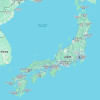Japan runs record current account deficit in January

Japan logged its largest current account deficit ever in January as a combination of global slowdown and China's Lunar New Year holidays undermined the country's ability to earn from trade.
The trade balance, a part of the current account, also hit a record deficit.
The current account deficit, at 1.98 trillion yen ($14.43 billion), was more than double a median market forecast of 818.4 billion yen. It was the biggest on record, the government said, reporting the figures on Wednesday.
January was the second straight month in which the current account balance was weaker than a year earlier, the Ministry of Finance data showed, illustrating Japan's waning strength in international trade.
But the primary income balance, another element of the current account, rose 350 billion yen from a year earlier to a 2.29 trillion yen surplus in January, driven by interest received from its investment in foreign securities.
That reflected the trend in which the country is increasingly earning income from capital parked abroad rather than by sales of goods and services.
The trade deficit, 3.18 trillion yen, was the largest since relevant data became available in 1996, the statistics showed.
The data pushed the dollar to 137.49 yen, its highest level since mid-December. That added to a dollar surge driven by Federal Reserve Chairman Jerome Powell's reaffirmation on Tuesday of the Fed's determination to bring inflation down to its 2% target rate.
The current account data also highlights the pain that stubbornly high energy costs are inflicting on Japan's economy, the world's third biggest, which relies heavily on imports of fuel and raw materials.
Exports also suffered in January from slowing foreign demand, including in China, Japan's largest trading partner, amid a global wave of monetary tightening aimed at restraining inflation.
China's Lunar New Year holidays, which temporarily reduce that country's imports, occurred in January this year. Last year they were in February.
Japan's January import bill was pushed higher by elevated prices of fuel and other commodities, partly a result of weakness of the yen and Russia's invasion in Ukraine. That overwhelmed a smaller rise in exports.
Japan's position as export powerhouse has waned in recent years, in part because companies have moved much production overseas.

 For all latest news, follow The Daily Star's Google News channel.
For all latest news, follow The Daily Star's Google News channel. 








Comments